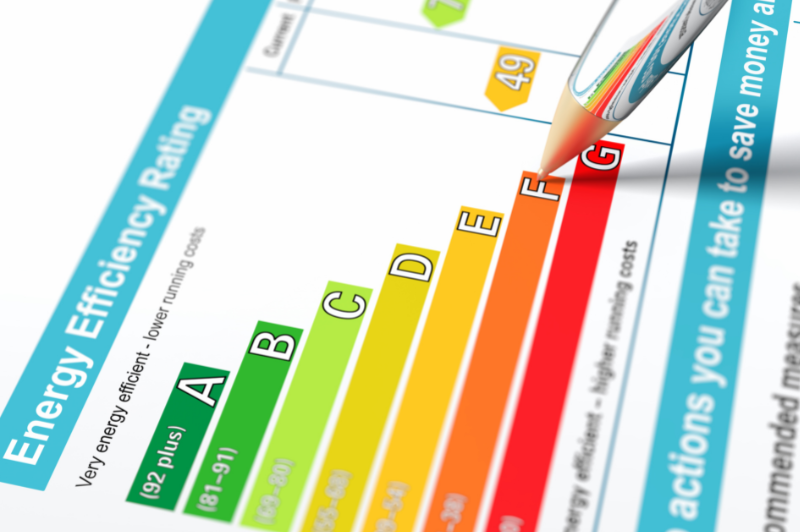An EPC (Energy Performance Certificate) explained
An EPC is a certificate that will show you how energy-efficient a property is. Properties are given a grade between A-G.
A is the most efficient scoring & G being the least efficient. The certificate lasts for 10 years and includes estimated energy costs. There’s also a summary of the energy performance related features of a property.
With energy bills rising rapidly you might be considering improving your home with insulation or other energy efficiency measures to help bring them back down. While it might not always be clear what the steps are or what to do, getting an up-to-date energy performance certificate – also known as an EPC – is a great place to start.
Is an EPC mandatory?
There are some situations where an EPC on your property is required by law. These are:
- If you are planning to rent a property (EPC must achieve band E as a minimum to be legally rented)
- If you are selling your property
- On construction of a new property
Thankfully, EPC certificates are valid for 10 years so in many cases your property will already have one that is still in date. We always recommend getting a new EPC carried out prior to renting or selling the property however to ensure it is as up to date as possible and taking into account any improvements that may have been made over the years. This means the EPC will have the correct energy rating for the current property situation.
If you are not sure if your property has a current EPC, don’t worry! All EPCs are “lodged” to the public EPC Register and can be obtained online here via a Google search.
The register is free of charge, and all you need is an address.
Some buildings are exempt including:
- Residential buildings that are intended to be used less than four months a year.
- Temporary buildings that will be used for less than two years.
- Stand-alone buildings with a total useful floor space of less than 50 square metres.
- Holiday accommodation that’s rented out for less than four months a year or is let under a licence to occupy.
- If you own or intend to buy a listed building, seek advice from your local authority if the work would alter the building’s character.
As of 2018, landlords in England and Wales are required to get an Energy Performance Certificate rating of band E or above to let their property. When you come to selling your home, an Energy Performance Certificate will be needed.
If your Energy Performance Certificate has expired, you’ll need to get a new one issued. You can get one through a domestic energy assessor or an estate agent if you’re selling your home.
Who carries out EPCs?
EPCs can only be carried out by trained and qualified Domestic Energy Assessors (DEAs). They will carry out a professional survey and collect all the information and pictures that are needed to generate your EPC. Once they have done this, they submit the certificate to the official register. DEAs can work for a variety of schemes known as accreditation bodies who regularly audit the work and EPC certificates they submit to ensure that it is accurate and has been conducted correctly.
Some common accreditation bodies that DEAs are members of are Elmhurst, Stroma and ECMK.
How could the ECO scheme help improve your EPC rating
The ECO scheme is a government energy efficiency scheme in Great Britain. It provides funding for insulation measures to make your home more energy efficient. These insulation measures allow people to spend less on their energy bills. The addition of insulation can also help improve the EPC of your home. Find out how you could enjoy free insulation measures under the ECO scheme.
If you don’t qualify for funding under ECO4, we have other options to help you live a more energy-efficient life. We can check & see if your Local Authority or Council is running a Grant Scheme.
